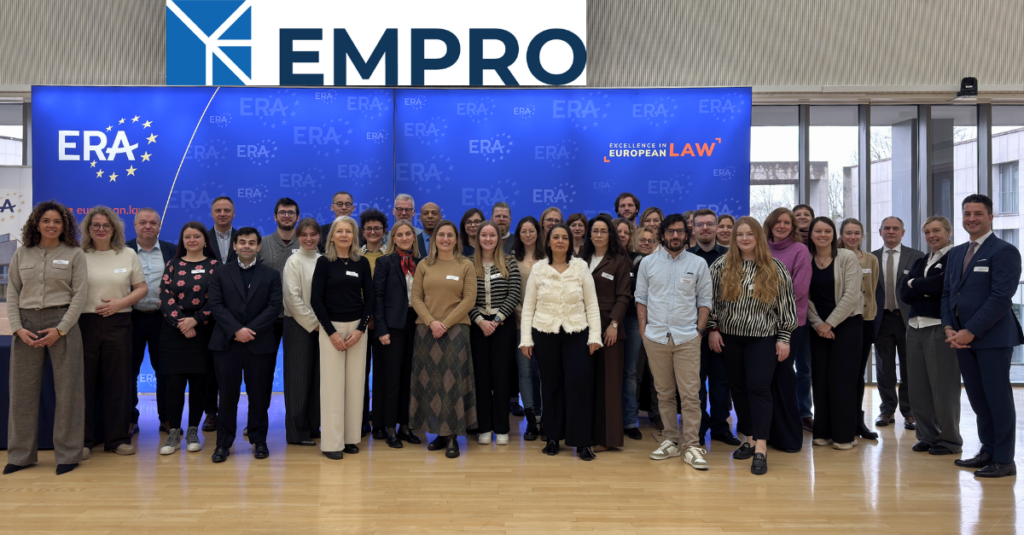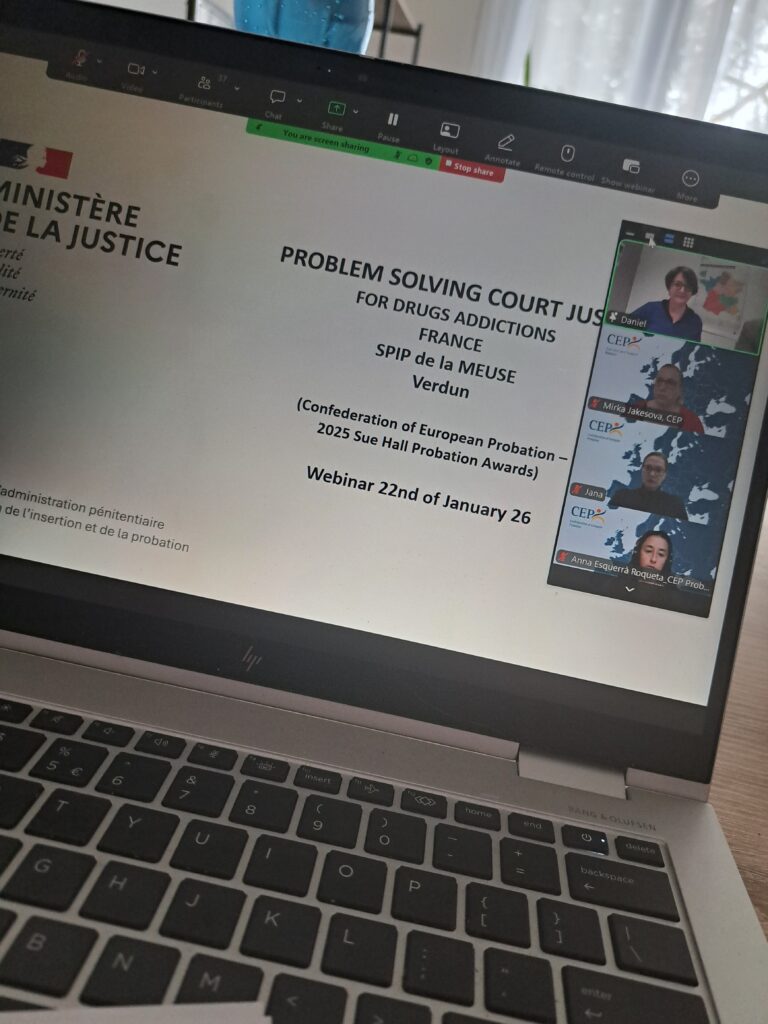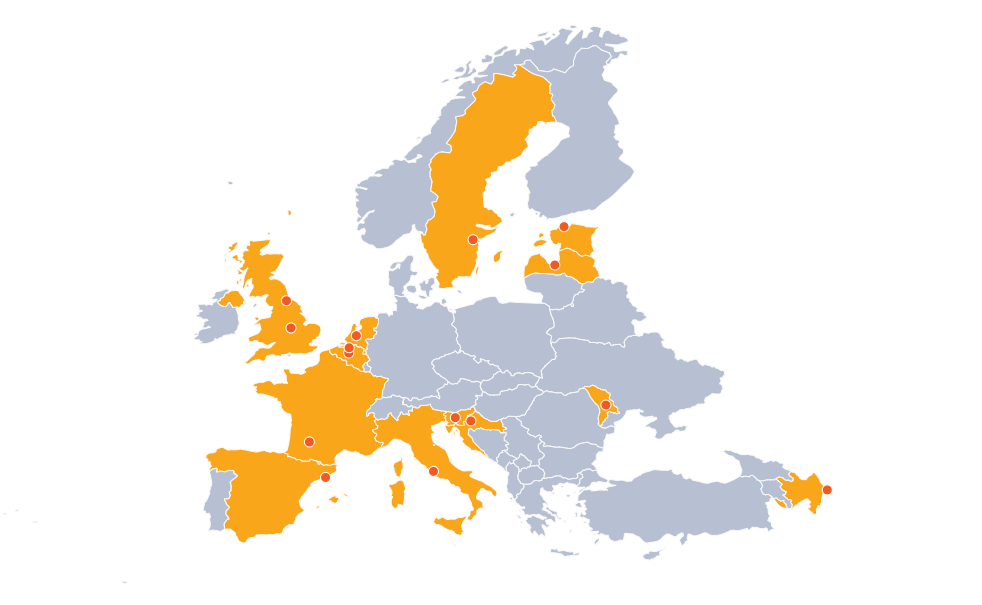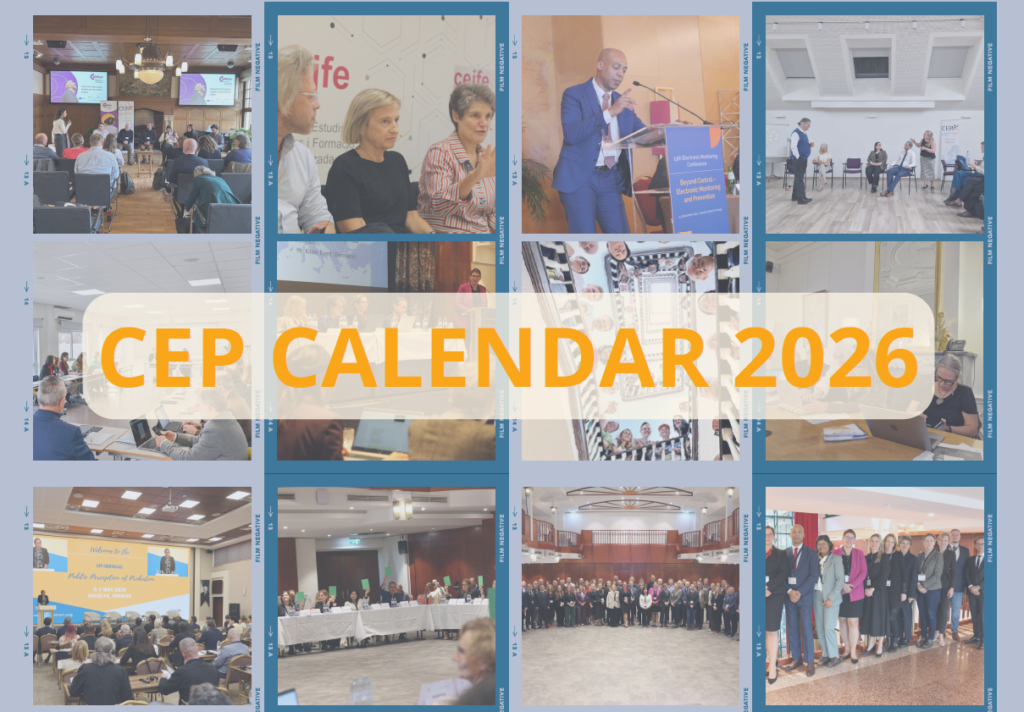Previous Article
News
The pains and gains of Electronic Monitoring
Since its introduction, Electronic Monitoring (EM) as an alternative sanction has gained popularity, which has led to various opinions. However, in political, academic an public reports, the opinions of the sentenced persons are seldom heard, let alone their families. That’s one of the reasons why the idea rose to conduct a doctoral research to the subjective perception of EM. Delphine Vanhaelemeesch (PhD) from Ghent University and IRCP research group tells about her thesis.
– from a convicts point of view –
“Apart from my personal interest for the daily perception of EM by offenders, there were 4 mains reasons to write my thesis about this subject. First, I think it is academically relevant to supplement existing studies with the experiences of offenders and their families with the effects of EM. For now, this is still a lacking part. Also, the user’s experience is crucial for measuring the policy objectives, for instance, the extent to which the use of EM contributes to desistance. And to gain better understanding of this penalty and to make a comparison about what is known about the prison perception. The third reason is to break existing myths in the public opinion that EM is the ‘easy live’. And from a policy’s perspective, EM is a humane alternative for prison. How can we know this for sure if we don’t study the user’s experience? And last but not least, there is the principled reason. Electronic Monitoring is all about humans, not numbers. We cannot forget that.”
Comparison imprisonment
“In total we spoke 74 convicts and 30 co-residents face to face at home or in prison. We started the interviews trying not to link EM to existing punishments, but after all we were driven, especially by our respondents, to make a comparison to imprisonment. As well the convicts and their co-residents reflected on imprisonment. The outcome of these interviews, the perception, are all individually based, in general, EM is in our interviews perceived to better than imprisonment. EM can have a punitive influence on both the convicts and the co-residents, but is often also considered as a valuable and constructive penalty. For both concerned parties, the favourable elements of EM usually make up for the unfavourable ones, especially because the convict is in the home environment and EM is tested against imprisonment. The preference for EM compared to imprisonment however, does not apply for all the people interviewed. Using EM requires self-discipline and organising skills. You have to keep track of time, you are limited in moving around, while your family members are not. You notice social life, but from the side lines, you cannot fully take part. The boundaries of what you can and cannot do are less clear than in prison. For a small group, this is stressful and difficult to cope with. In prison, the boundaries are obvious and set for you. But still, boundaries are felt. An example was given by a young single mother, who saw her child get hurt by falling down in the garden. She instinctively wanted to run to her child, but at the moment, she was housebound.
But for the majority of the respondents, the use of EM helps them to create a routine and to take distance of a criminal environment. Extra benefit for being in home environment, is maintaining relationships with their family and employer. Something worth fighting for. The transition to a non-criminal life is seen as much more difficult coming out of prison.”
Effect EM on co-residents and loved ones
“From this research, it appears that co-residents are significantly affected by the use of EM and experience unintended side effects, despite the fact they are not the punished ones. Although most respondents are satisfied with EM, because the convict is at home, they see their lives affected as well. Some of the respondents even experienced it as a punishment. They often automatically life by the tight schedule of their convicted husband or son. They feel guilty to go outside for festivities or entertainment without their spouse or find it difficult to have to explain at social events why they have come alone. Also, they take up extra tasks and responsibilities, check the conditions and offer support because they want the convict to imply with the imposed conditions. They become a helper, social assistant and inspector, instead of wife, husband, mother or father.”
Recommendations
“This knowledge and experience of offenders and their co-residents can be used by policy makers and practitioners to modify or improve their systems and services. In my thesis, I formulated 4 main recommendations. Firstly, it’s important to pay attention to individual, social and contextual factors in the allocation and execution of EM. Secondly, EM should be treated as a means, not as a purpose. Preference goes to embedding in and relating EM to reintegration programs. Thirdly, it remains important that people are involved in EM. It is a people’s work, so it’s important to select, train and inform concerned staff members. Fourthly, it is important to pay attention to the significant others, and to consider them as an integral party within the penalty enforcement. And finally, a decent information policy and proper support is important for both the convicts and the loved ones.”
Are you interested in the complete thesis? Vanhaelemeesch, D. (2015). De beleving van het elektronisch toezicht in vergelijking met de gevangenisstraf. Den Haag: Boom Criminologie.

Related News
Keep up to date with the latest developments, stories, and updates on probation from across Europe and beyond. Find relevant news and insights shaping the field today.
New

Uncategorized
CEP at the EMPRO Symposium hosted by ERA
04/02/2026
CEP actively contributed to the EMPRO Knowledge Exchange Symposium hosted by the Academy of European Law (ERA) in Trier on 28–29 January, bringing together practitioners, policymakers, and researchers to reflect on the implementation of EU Framework Decisions in probation and supervision.
New

Alternatives to pre-trial detention, Community Sanctions and Measures, Framework Decisions, Technology
Future of Criminal Justice: CEP’s Contribution to Key 2025 Dialogues
27/01/2026
Throughout 2025, CEP and its representatives actively participated in the online Technical meetings ahead of the HLF as well as the High Level Forum on Future of Criminal Justice taking place on 4-5 March 2025, 20-21 May 2025 and 1-2 October 2025 in Brussels, Belgium.
Recap

Alternatives to pre-trial detention
Recap: Webinar on Alternatives to Detention 2026
26/01/2026
On Thursday 22 January, CEP hosted the first webinar of 2025 on the topic of Alternatives to Detention. The session led by Ms. Marina Pajoni from the French Prison and Probation Service titled „Problem Solving Justice in Pracitce: The Meuse Probation Service´s Approach to Drug Addiction“ introduced an innovative programme developed by the Meuse Probation Service in close cooperation with the French Ministry of Justice.
New

Education and Training
CEP launches an interactive European map of probation education and training institution contacts
22/01/2026
The CEP is pleased to inform its members that a new dedicated section has been developed on the CEP website featuring an interactive map of Europe.
New

CEP Events
CEP activity calendar 2026
20/01/2026
As we begin the new year, we would like to thank all CEP members, partners, and participants for your continued engagement and valuable contributions. Your involvement plays an essential role in shaping CEP’s work and activities.
We are pleased to share the CEP calendar for 2026, which provides an overview of the events planned for the year ahead. We look forward to continuing our collaboration and welcoming you to upcoming CEP activities throughout the year.
Thank you for being part of the CEP community.
New

CEP members, Gender-based violence
Interventions Alliance’s Eden House Recognized as Outstanding
15/01/2026
CEP is delighted to share that Eden House, an Interventions Alliance residential service for women with high-risk or complex needs on probation, has been rated “Outstanding” overall by HM Inspectorate of Probation. In 2022, Eden House was honored with the CEP Public Protection Award. Our sincere congratulations to the team for this remarkable achievement.
Subscribe to our bi-monthly email newsletter!
"*" indicates required fields
- Keep up to date with important probation developments and insights.

